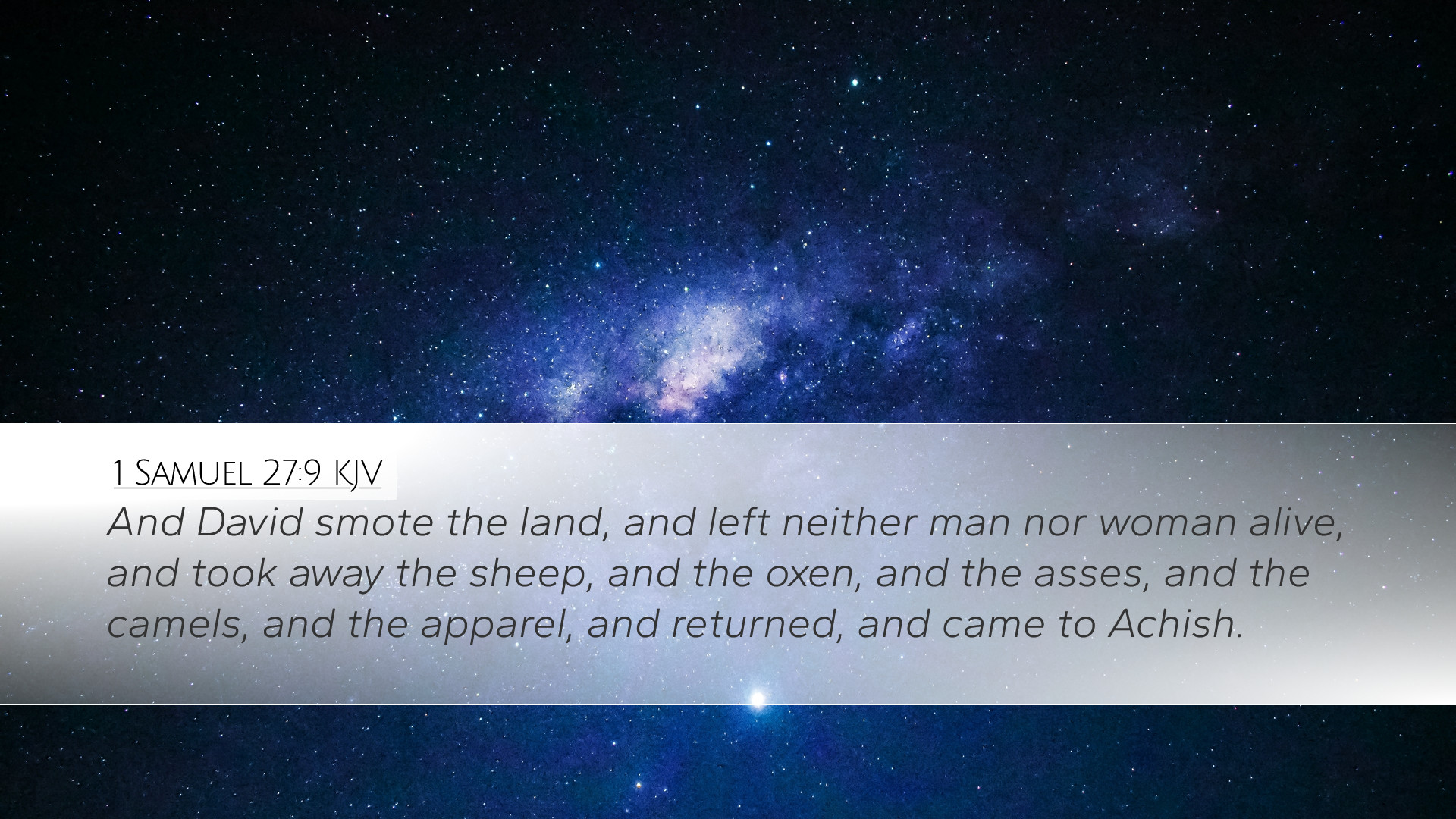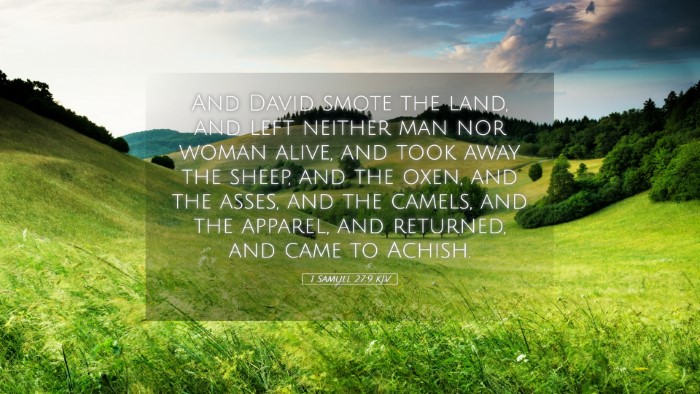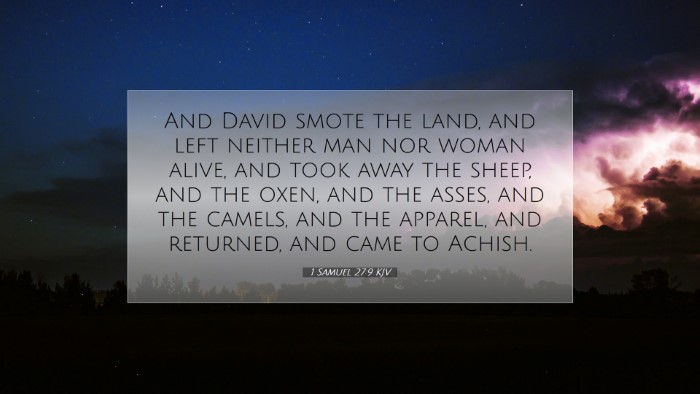Commentary on 1 Samuel 27:9
Verse Context: 1 Samuel 27:9 states, “And David smote the land, and left neither man nor woman alive, and took away the sheep, and the oxen, and the asses, and the camels, and the apparel, and returned, and came to Achish.” This verse comes during a time in David's life when he has sought refuge with Achish, king of Gath, amid Saul's relentless pursuit. David's actions raise significant ethical and theological questions that warrant a deeper exploration.
Insights from Matthew Henry
Matthew Henry points out that David's actions reflect a shift away from his previous faith-driven choices. He notes, "David, in taking refuge among the Philistines, was attempting to secure his safety but at the cost of compromising his values." Henry also highlights the moral implications of David's complete annihilation of the enemies in the land, stating that it shows a departure from the previous divine command to deal differently with the enemies of Israel.
This commentary urges readers to reflect on what it means to operate under the guise of survival. David's actions can be seen as a human solution to a divine promise that seemed delayed—exposing a struggle between faith and pragmatism.
Insights from Albert Barnes
Albert Barnes elaborates on the historical significance of David’s military campaigns during this period. He observes that David, having acted as a protector of the Philistine territories, now turns to the explicit destruction of Amalekite inhabitants as a tactical maneuver to maintain his cover with Achish.
- Strategic Warfare: Barnes interprets David's strategy as shrewd yet morally problematic. He asserts, "David's acts of warfare must be understood in light of his dual role as a military leader and as a servant of God."
- Theological Reflection: Barnes further states that this act should prompt theologians to consider how divine ethics can become obscured by the immediate pressures of survival.
Barnes concludes that spiritual leaders must not lose sight of their divine calling—even in times of crisis—because the ends do not always justify the means when it comes to fulfilling God's will.
Insights from Adam Clarke
Adam Clarke offers a critical view on the implications of David’s decisions, emphasizing the ethical ramifications of killing without just cause. He asserts, "By sparing none, David not only violated principles of mercy but also set a dangerous precedent for future leadership in Israel."
Clarke's analysis leads to several themes that are relevant for pastors and theological students:
- Leadership Responsibility: Clarke emphasizes that leaders are accountable not just for their personal decisions but for their impact on their communities. He cautions against decisions made in fear that lead to greater moral decay.
- Divine Judgment: He warns that such actions can invite divine judgment upon a leader, as seen through Israel's history. Leaders should seek God’s guidance earnestly to avoid both personal and communal consequences.
His commentary serves as a reminder that each decision has rippling effects on one’s community and relationship with God.
Theological Implications
The actions of David in this verse beg significant theological reflections:
- Faith vs. Fear: The story exemplifies a recurring theme in Scripture where fear can lead to unfaithful actions. David's trust in God's providence wavers, presenting a profound lesson on the need for unwavering faith even in dire circumstances.
- The Nature of Violence in Scripture: The moral questions surrounding divinely sanctioned violence versus human choice is a central theme that emerges from this text. It encourages deep exploration into how believers today interpret the use of force and violence within God’s kingdom.
Conclusion
In conclusion, 1 Samuel 27:9 serves as a critical reflection of the challenges faced by leaders in their walk with God. It emphasizes the necessity for discernment, moral integrity, and the importance of aligning our actions with divine principles. Collectively, the insights from Matthew Henry, Albert Barnes, and Adam Clarke present a holistic understanding that challenges pastors, students, theologians, and scholars to engage thoughtfully with the text and its implications for contemporary leadership.


